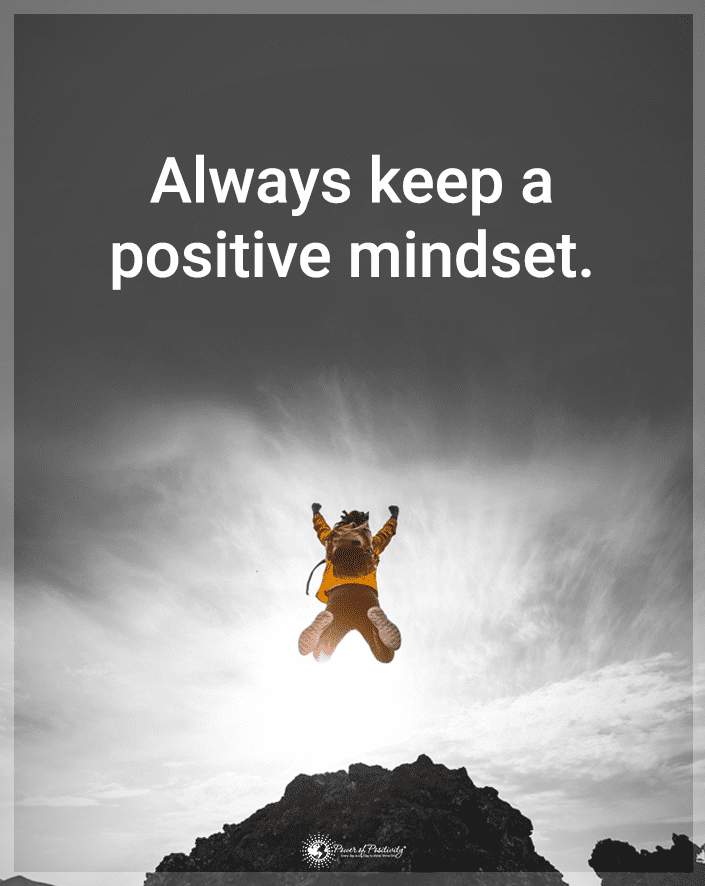Emotional confidence refers to high self-esteem and the ability to engage with relationships or social behaviors that are risky, potentially uncomfortable, or intimidating. It means maneuvering and carrying yourself well in a social environment without feeling inferior to others.
At its core, emotional confidence requires the same components as typical confidence but on a more zoomed-in level. You can learn from people around you who exude this kind of faith that good self-esteem is always the way forward – but let’s break it down even further.
Here are four habits of emotionally confident people you can adopt today
Adopt these four habits if you hope to become more emotionally confident.
 1. They Own Their Authority and Assertiveness
1. They Own Their Authority and Assertiveness
You can tell when someone is emotionally confident by how they speak and carry themselves. They’re reasonable, but they’d never let themselves be pushed around. They own their power and assert themselves with dominance, confidence, and authority, often with a delicate balance that prevents cockiness. How can you build this kind of ownership of confidence? Here are some tips:
· Learn To Say No
Difficulty in saying no can lead to burnout as you overcommit, accept poor treatment to keep the peace, and get used to holding your tongue. While there is wisdom in picking battles and knowing when to give, there is also wisdom in knowing when you can turn something or someone down. Learning to say no with conviction is key to building up your emotional confidence. It tells others that you’re capable of making solid decisions in your best interests and can’t be swayed by crossing boundaries. You’re not one to mess with!
· Be Decisive
People who lack confidence also often cannot make quick, intelligent decisions. There’s nothing inherently wrong with needing to ponder your options for a while, but confident people don’t spend forever overthinking, second-guessing, and being too afraid to begin. Sometimes, you need to learn to take leaps of faith – or, better yet, to trust your initial judgments. You’ll be right sometimes and wrong in other times, but no matter the result, you’ll slowly learn that you’re capable of making good decisions and bouncing back from bad ones. Decision-making skills are crucial for confidence, say studies!
· Speak With Certainty
If you lack confidence, you’re likely to add disclaimers to all your sentences. For example, when giving information, you may use phrases like “I may be wrong, but…”, “I think…”, or “If I recall correctly…”. While these phrases are used accurately and are useful in some cases, at other times, they may weaken your overall message. If you know something for sure, don’t use phrases that imply you don’t!
Speak with confidence, and, over time, your confidence will grow, and you won’t have to try so hard to avoid these hedging statements.
2. They Welcome “Failure.”
No human being is perfect, and failing is a part of growth. Emotionally confident people know this and therefore accept or even welcome failure. Viewing something that so many people consider automatically harmful as a good step forward will do wonders for your confidence. Here are some tips for welcoming so-called failure in your life:
· Change Failure’s Name
Failures aren’t actually failures. Their opportunities to learn and grow. They’re challenges, hurdles, setbacks, and learning experiences. The term “failure” seems to imply that nothing good has come of it, and that’s unproductive and can tank your self-esteem. Stop letting your confidence gets knocked down by perceived failures by referring to them with positive names and positive thinking. You’ll find yourself feeling much more charitable towards ideas of failure.
· Analyze Your Mistakes
When you “fail” or face setbacks, you get the golden opportunity to learn from them. Understand the root cause of this problem and how you can circumvent it or handle it in the future. Your emotional confidence and resilience will skyrocket when you begin falling into a habit of becoming more prepared for future setbacks by studying current ones. Writing about failures is a great way to learn to analyze them and build confidence and self-improvement in the process, say studies!
· Don’t Dwell For Too Long
An emotionally confident person doesn’t ruminate on their challenges or mistakes for longer than necessary. They learn the lessons that need to be understood, make decisions about moving forward, and then carry on with their lives. They know that sitting and stewing can become unproductive and may prevent them from continuing with their lives and improvement. Learning to let go is part of becoming confident. You’re no longer treating your setbacks as defining moments, only as tools, and thus “failure” becomes less frightening.
3. They Are Kind To Themselves
An emotionally confident person shines from within because they nourish themselves. They make themselves a priority and treat themselves with kindness because that’s how their confidence grows. When you take care of yourself, you feel better and are imbued with positive thinking that helps your self-esteem. Unfortunately, those with low self-esteem are often mean, cruel, and unfair to themselves! How can you undo that pattern? Here are some ways to be kind to yourself:
· Talk To Yourself With Compassion
Self-talk has to be realistic, but it also has to be kind. Admitting the truth to yourself should be done with compassion. Talk to yourself as you would talk to a friend. For example, “I wasn’t prepared enough for that presentation, but I powered through it like a hero. Plus, now I know how much preparation I need in the future.” This kind of self-talk stays realistic without becoming mean, and it builds your confidence by indicating that you will always forgive yourself and continue to move forward.
· Don’t Expect Constant Confidence
Even the most emotionally confident people are not beacons of endless, non-stop confidence. Everyone has bad days, and a little bit of self-doubt can even be realistic. Too much confidence, all the time, can quickly tip into arrogance, and you don’t want to have so much positive thinking that your optimism is no longer grounded in reality. Being aware of faults and flaws, facing moments of self-doubt, and making mistakes are part and parcel of self-improvement. So don’t be hard on yourself when you can’t always be confident. Forcing constant confidence will only ever be counterproductive.
· Don’t Compare Yourself To Others
Self-comparison is a quick confidence killer. Everyone is out here in the world presenting their best selves to others, so all you see is their most flattering angle. Remember, these people are human beings too, and they all have unique journeys that you are not privy to. They are not better than you, and you are not better than them. You are all humans doing your best to grow, learn, and be confident in everyday life. When you realize that you can best serve yourself by focusing on yourself – and that you aren’t alone in how you feel – you’ll become more emotionally confident.
· Validate Yourself
Too often, you may find yourself saying that your emotions are ridiculous. “I shouldn’t feel this way, ” you say. But there are no rules that tell you how you’re supposed to feel. Validating your emotions will help you process them and handle them rationally. This doesn’t mean believing that emotional reactions are genuine. Instead, it means allowing your feelings to exist and speaking to them with kindness. “I understand you, but you don’t serve our progression, so we’re going to learn how to fix this.”
· Be Kind To Your Future Self, Too
Self-compassion at the moment is essential, but don’t forget that what you don’t deal with now, you’ll have to deal with in the future. There are moments where being kind to yourself can be overdone, translating instead into being overly lenient and making excuses. Learn to prevent this from occurring by thinking about your future self. Would they be able to handle the responsibilities you’re shifting to them? The more you care about yourself in all its iterations, the more confident you’ll become thanks to your preparedness and a better understanding of your needs.
4. They Use Self-Reminders About Their Identity and Purpose
Do you know who you are? Emotionally confident people do! That’s how they can be so confident in themselves. They know themselves well and aren’t fooled by people who try to make them feel like they don’t. You can achieve this by regularly reminding yourself of your life goals, identity, and everything you like about yourself. Here are some things you should keep in mind:
· Your Strengths
Emotionally confident people know their strengths well because that is often one of the sources of their confidence. It’s easy to feel out of your depth and begin to question your capabilities when you’re not playing to your strengths. As it turns out, no one’s good at everything, so people who seem to be doing well all the time know how to direct their energy correctly. Learning to contribute in ways that you know you excel in is a good way to build and maintain confidence.
· Your Values
Your values determine your character’s content, and that’s a powerful thing that gives you a powerful source of confidence. Studies have shown that recalling morals and goals can have a positive effect on confidence and motivation. This is because your values are what you can firmly identify with and remind you of your purpose, ambition, and self. Knowing who you are and what you stand for keeps you confident.
· Your Expertise
Emotionally confident people don’t assume that they are inferior to others. They know that they should listen to experts in specific fields when they’re out of their depth, but they also know when they are the experts in a situation. When you’re among your peers, own your expertise. You can participate in and contribute to discussions with people at your level without feeling like you’re an imposter. Remember, you worked hard to get where you are. Own and use that to help others and be a part of circles that share your knowledge!

Final thoughts on habits of emotionally confident people
Emotionally confident people are impressive and admirable, and you can learn to develop the skill of emotional confidence by adopting some of their positive habits! Working on your self-love and self-esteem is always a fantastic place to start, and as you gain confidence over time, you’ll see the significant effects it has on your social interactions and relationships.


















